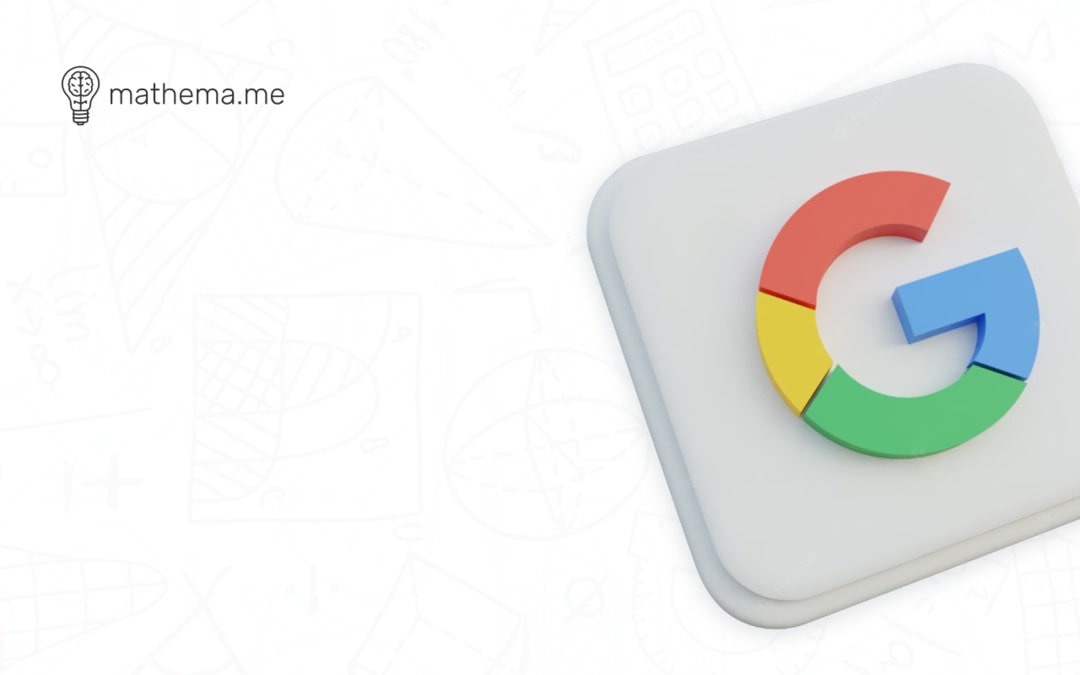There are numerous rumors about the questions posed in Google interviews. Forums and specialized websites are constantly filled with logic puzzles that recruiters use to test a candidate’s ability to think and solve unconventional problems.
Curious about how to secure a job at Google? Mathema spoke with Tylek Mamutov, a former engineer at Google X, Google’s innovation arm, who spent 11 years at the company. He shared tips on how to effectively prepare for math questions in interviews at some of the world’s leading tech firms.
How to Land a Job at Google?
Google is one of the largest tech giants globally. Thousands of employees work at Alphabet, its parent company. Despite the company actively reducing its workforce due to economic downturns and inflation, they are still recruiting for certain positions.
Google interviews are somewhat akin to an exam. The company states that they aim to assess a future employee’s skills rather than their education or qualifications. Recruiters primarily focus on resumes, receiving up to 3 million annually. To ensure your resume gets noticed, it must meet all requirements, even the smallest ones. These are usually clearly outlined for each specific vacancy.
The main requirement for all resumes is conciseness. Aim to include as much information about yourself as possible within 1-1.5 pages. Google recruiter Jess Penkhus recommends using the XYZ model to structure your resume. This means framing all your achievements as follows: “I accomplished task X, measured by Y, through actions Z.”
Here’s an example of a resume point Penkhus provided: “Successfully improved portfolio performance by 12% ($1.2 million) in one year by refining capital cost calculations for low-information markets and rebalancing the portfolio based on obtained valuations.”
Google also identifies four main criteria for evaluating a candidate. These criteria help predict how successful a person will be in their role at the company:
- Fit: Does the candidate have the required experience and skills for the position?
- Cognitive abilities: How does the candidate make decisions? What data sources do they consider? What do they focus on when encountering problems?
- Leadership skills: Can the candidate take responsibility and drive innovation?
- Googliness: How can the candidate contribute to improving Google? How will they work in a team? How do they react to feedback?
All the Math Topics You Need to Know for a Google Job Interview: Advice from Tylek Mamutov
Math skills and knowledge are highly valued in tech companies. Tylek has broken them down into categories that are essential for interviews at Google, Amazon, Meta, Apple, and others.
Essential Knowledge
- basic arithmetic operations (addition, subtraction, multiplication, division)
- place value, rounding
- fractions
- units of measurement (e.g., length, weight, volume)
- negative numbers
- percentages
- exponents
- roots
- irrational numbers
- prime numbers
- the concept of infinity
- binary system
- linear equations and inequalities
- graphing equations
- systems of equations
- quadratic equations
- polynomial equations
- functions
- logarithms
Additional Topics That May Come Up (about a 10-20% chance)
Geometry
- lines, angles, shapes, triangles, quadrilaterals
- coordinate plane
- perimeter
- volume, surface area
Pythagorean theorem
- trigonometric functions: sine, cosine, tangent, cotangent
- circles, arcs, radians, the number π
Basic Statistics and Data Analysis
- data description, mean, median
- combinatorics
Less Likely, But Possible
- axioms and rules of probability
- discrete and continuous random variables
- probability distributions
- variance
- conditional probability
Rarely Asked
Advanced Arithmetic
- number theory
- modular arithmetic
- Diophantine equations
Number Systems
- complex numbers
Advanced Algebra
- abstract algebra
Other Potential Interview Questions
Google and other tech companies also often ask behavioral questions. The aim is to understand the candidate’s behavior and creative thinking abilities. You might be asked about the company’s main competitors, your favorite product, and how you would improve it.
When answering, it’s advisable to ask plenty of clarifying questions. Recruiters generally appreciate an engaged conversation. Also, try to base your answers on your past experiences, using them as an opportunity to highlight your achievements.
You might face some unusual questions in the interview, such as, “Can a manhole cover be anything other than round? Are there any other shapes?” The correct answer is “no,” because only a round cover cannot fall through a round hole. These types of questions typically don’t significantly impact the interview outcome, even if you answer incorrectly or challenge the problem’s premise. Recruiters are more interested in analyzing your thought process and behavior than in hearing the right answer.



